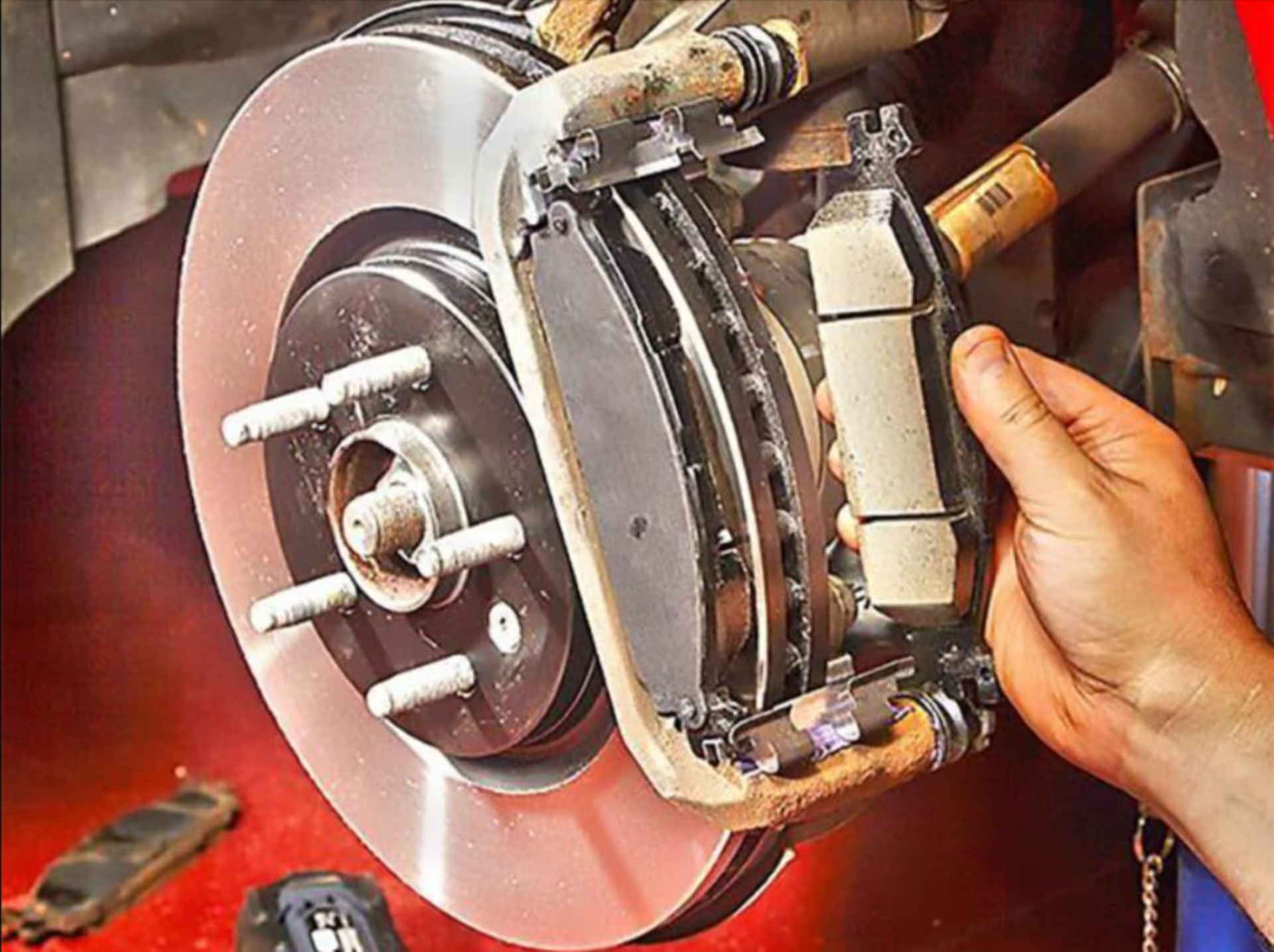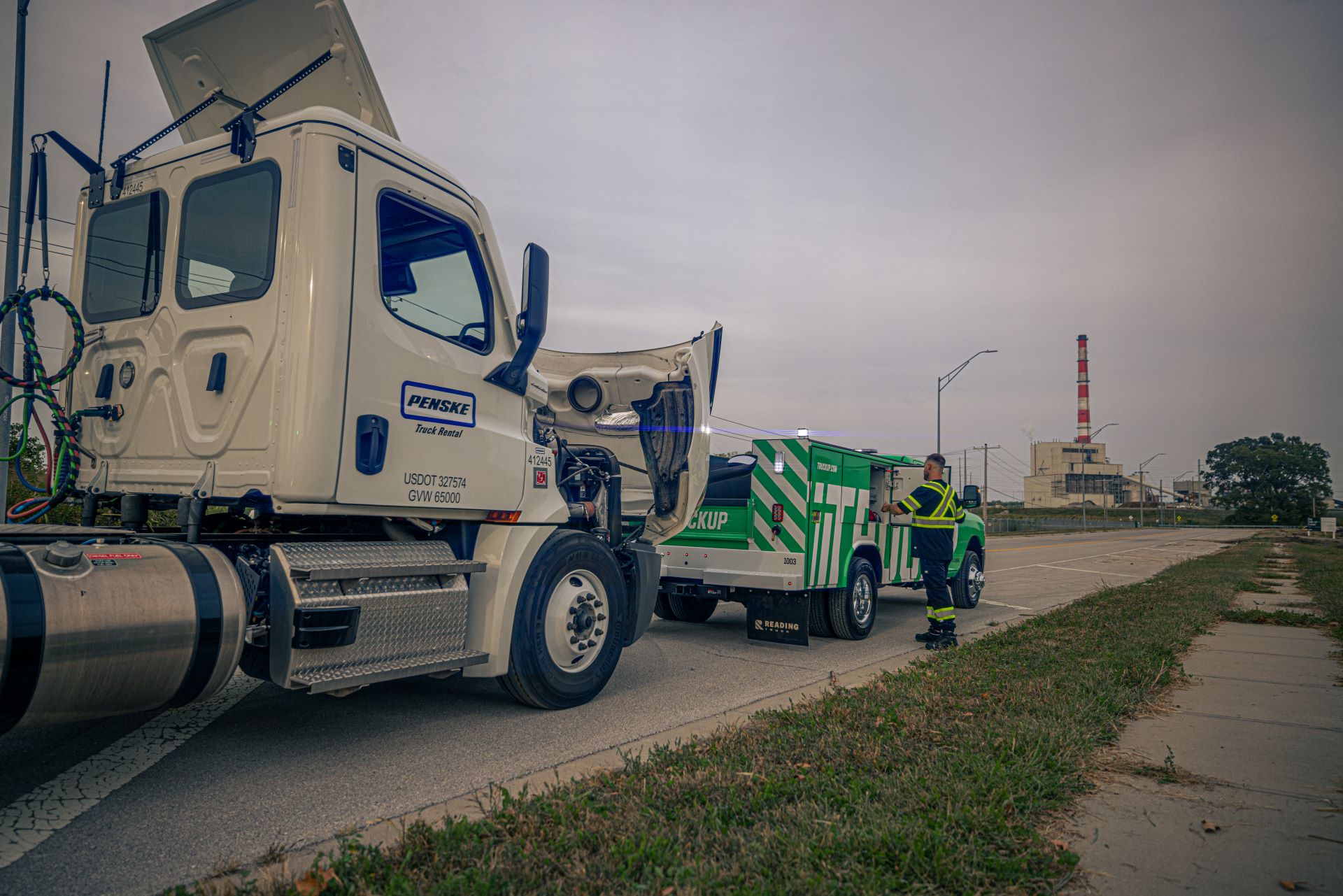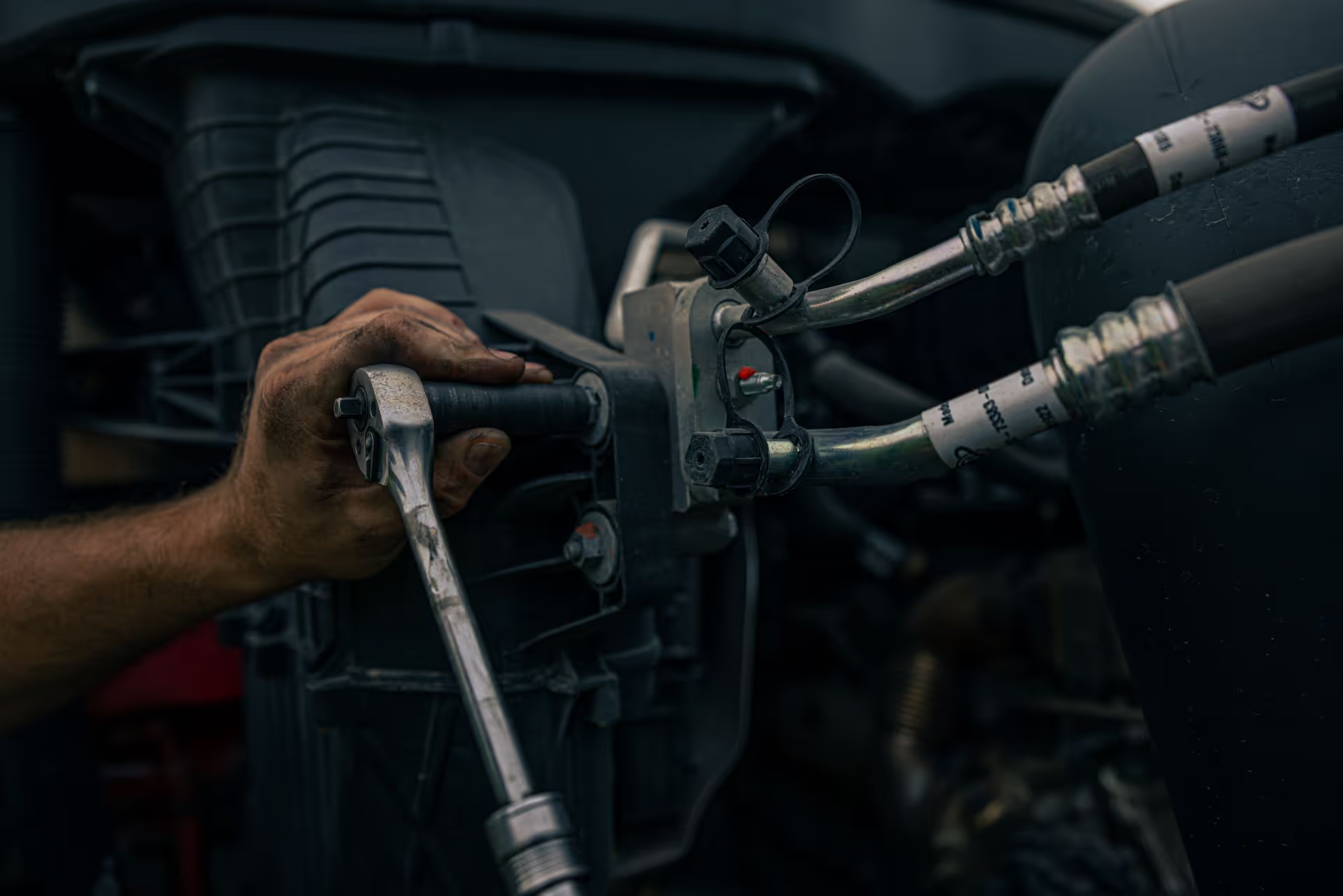
An effective braking system will enable your heavy-duty truck to slow down and stop when encountering traffic jams and traffic lights, reducing the risk of an accident. Your truck's brake system is prone to damage because of the heavy weight of your 18-wheeler, the tractor-trailer, and the additional weight from the load it hauls.
Understanding the causes of brake failure and it's signs will help you fix the issue early to avoid costly repairs and increased downtimes. In this article, we have discussed the common brake problems in heavy-duty trucks and the approach you should take to fix them.
As a fleet manager or truck driver, always diagnose your vehicle to identify the signs of these issues we have discussed below and have them fixed for the better performance of your truck and the safety of your driver and other road users.
Keep reading.
Different Types of Braking Systems in Heavy-Duty Trucks and How They Function
1. Air Brakes
The air brake system is common in heavy-duty vehicles. It comprises an air compressor, brake chambers, brake lines, and air tanks.
How They Work
When the brake pedal is pressed, air pressure is released from the reservoir and travels to the brake chambers through hoses and valves.
The air pressure pushes against a flexible diaphragm in the middle of the chamber, causing it to move and push a rod outward. This rod then activates the slack adjuster, which twists the brake camshaft and turns the S-cam.
The S-cam forces the brake shoes apart against the drum or rotor, creating friction that slows the vehicle. When the brake pedal is released, the S-cam rotates back, and a spring pulls the brake shoes away from the drum, allowing the wheels to roll again.
2. Brake Drum
The brake drum is a hollow, cylindrical, cast-iron container attached to the inside of the vehicle’s wheel and rotating at the same speed as the wheel. The drum surrounds the brake pads, and together, they work to slow down or stop the truck.
How They Perform Their Functions
When you press the brake pedal, the brake fluid exerts pressure on the piston, which pushes the brake pads against the interior of the rotating wheel to create a resistant force that slows down the wheel, making the semi-truck stop.
What Will Happen if You Fail to Service Your Heavy-Duty Brakes?
Brakes are essential safety features for heavy-duty vehicles. They require routine maintenance to enhance their functionality.
Include brake system in your vehicle's maintenance checklist to ensure they are inspected and maintained every time you service your vehicle.
Well-maintained brakes will keep you safe by slowing down and stopping your truck to prevent accidents.
Failing to maintain your braking system will lead to the following.
a) Potential accidents may occur, putting the truck operator, other drivers, and individuals at risk of harm.
b) Costly repairs. Ensure you inspect your braking system regularly to identify issues and fix them early before they damage other components and become major.
c) A faulty brake system will increase repair downtime costs, leading to losses and reduced customer trust because of delayed deliveries.

8 Common Brake Problems in Heavy-Duty Trucks and Their Causes
1. Uneven Wear and Tear
When you carry more load than expected, you will likely increase pressure on the brake shoe, promoting wear and tear. Your truck may fail to stop once the brake pedal is engaged.
If the weight is not distributed equally on both sides, the brake shoe on one side of your truck may wear out, causing your vehicle to pull to one side when you apply the brakes.
2. Braking Too Often
You will likely hit the brakes harshly during an emergency to avoid accidents. Sometimes, this can happen when you or your truck driver follows traffic more closely.
High pressure is exerted on the brake shoes when you apply emergency brakes abruptly, making your truck stop instantly. Excessive braking may lead to overheating the brake pads, so wear them out.
3. Presence of Contaminants in the Brake Shoes
When you drive through a muddy road, during the rainy season, or when you carry garbage, your brake pads are likely to contain impurities like water, mud, sand, and other types of debris. These substances will lower the effectiveness of your brake pads and even wear them out.
4. Worn Brake Pads
Excessive braking causes overheating, which wears out your brake shoes and reduces the stopping power of your braking systems.
5. Locking Brake
Sometimes, your brake shoe may lock and fail to disengage after applying the brakes and slowing down. It happens when the brake shoe fails to release itself after engaging the brakes.
6. Leaking Airlines and Fluid Lines
Heavy-duty trucks use air, brake drums, or hydraulic fluid brakes to slow down or stop.
The airlines or other elements associated with the air brakes may be defective because of punctures and cracks. This makes the air drum unable to compress the air pressure necessary to stop the truck and sometimes may increase the time your vehicle takes before it comes to a complete stop.
Apart from damaged airlines, loose fittings and worn-out seals are other factors that may lead to air leaks in your truck's air brakes.
Damaged brake fluid lines can stop enough force from reaching the brake calipers, preventing them from applying brakes when needed. Leaking cylinders can also cause this issue.
7. Poor Maintenance
Ignoring brake maintenance will keep you in the dark about the state of your truck's brake system and may jeopardize the operation of your vehicle and risk the lives of your driver, passengers, and pedestrians.
By servicing your brakes, you can detect and solve any upcoming issues early before the damage other components of your truck, leading to costly repairs.
8. Electrical Faults
Once you press the brake pedal, the brake lights should turn on to alert other drivers of the truck driver's action. Without the brake lights, other vehicles may crash into your truck, causing fatal accidents.
The brake lights may fail to turn on because of burned out bulbs, blown fuses, and loose or damaged wires.
How to Fix Brake Problems in Heavy-Duty Trucks
- After every trip, inspect your braking system to determine the state of your air compressors, air reservoirs, fluid tanks, and other components, detect leaks, and replace damaged ones.
- Replace old and worn-out brake shoes to increase their effectiveness.
- Avoid overloading your truck and ensure the load is equally spread in your tractor-trailer to ensure your brake shoes wear out evenly.
- Avoid braking too hard or too often to reduce overheating in the brake shoes, which leads to wear. You can advise your truck drivers to avoid excessive braking or braking too often to reduce wear and tear on the brake shoes and even damage to other brake components.
- Ensure you service your braking system properly and regularly. Through servicing, you can inspect all the parts of your brake and identify worn brake shoes, corroded brake lines, and other broken brake components to repair and fix them early to avoid further damage.
- Clean your brake shoes to remove contaminants and increase their efficiency.
- Ensure your heavy-duty truck wheels are correctly aligned to distribute pressure equally on the truck and ensure the shoes wear evenly.
- Replace burnt bulbs and fix loose and disconnected wires to ensure the brake lights function well.
Conclusion
Functioning brakes are essential for a successful trucking business. Inspect and maintain them regularly to identify and fix upcoming issues before they become serious. Suppose you need help maintaining and fixing your brakes. In that case, our experienced Truck Up roadside mechanics will inspect your heavy-duty brakes to identify and fix all your brake issues early before they escalate. Contact us today for all your truck maintenance services.
Frequently Asked Questions (FAQs)
1. How Often Should I Change My Brake Pads?
When to change your truck's brake shoes depends on driving conditions, the state of the brake shoe, and the distance the vehicle covered. Consider replacing the brake shoes every 25,000 to 65,000 miles and the rotors every 30,000 to 70,000 miles. If the brake lining is worn out, it's time to replace the brake pads.
2. How Do I Know If My Semi-Truck Brakes Are Bad?
Your semi-truck brakes are defective if you notice any of the following signs: excessive vibrations when applying brakes, brake warning lights on the dashboard, squealing or grinding noises, reduced acceleration after engaging brakes, a soft feel on the brake pedal, your truck pulling to one side when you apply brakes, your vehicle taking time to stop after you apply the brakes, or increased acceleration when driving downhill.
3. What Should I do If my Brake Fails?
If your brakes malfunction while driving, avoid using the emergency brakes. Instead, downshift to slow down, pump the brakes if you use hydraulic brakes, use an emergency ramp, lane, or road shoulder to stop, and seek help from a nearby truck repair shop or mobile mechanic.
“Being a mobile mechanic allows me to earn significantly more than I would in a traditional garage setting. The convenience I provide to customers, coupled with the lower overhead costs, means I can charge a premium for my services and keep a larger share of my earnings.”







